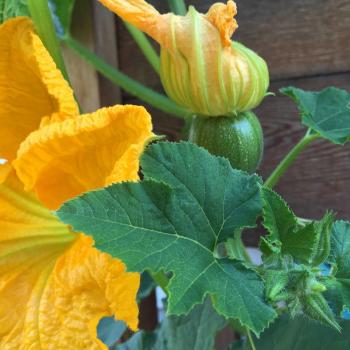Questions can be a rather powerful thing, as you may well know.
When I was in full-time ministry, I used to play a game affectionately called “Twenty Questions.” The game was exactly that, and then some: sitting down with a high school or middle school student over Jamba Juice smoothies or caramel Frappuccinos, the conversation usually went something like this.
“Wanna play a game?”
“Like what?”
“Twenty Questions.”
“I don’t get it. What’s ‘Twenty Questions’?”
“Oh, it’s easy. I ask you twenty questions about yourself and you give me twenty answers about yourself.”
“Okay?” They’d say in reply, because who plays that? What kind of game is that?
I’d put my fingers in the air, ready for the greatest countdown of all time.
“You ready?”
“I guess?” Their sentences already populated by question marks at the end, it was like they didn’t even know they’d already started playing the game too.
“K. On your mark, get set, go. Question #1: Would you rather have a unicorn horn or a donkey tail?”
“Horn!”
“Awesome. Question #2: If you could eat one home-cooked meal for the rest of your life, what would it be?”
“Mashed potatoes and gravy!”
“Amazing. Question #3…” And on and on we’d go, sometimes not even getting through two rounds of fingers because some question would birth a longer, deeper conversation along the way.

Some of the questions were funny, others more serious. Some of them elicited a one-word answer, others a laborious, drawn-out paragraph or two. But all them had meaning, because all of them were rooted in an intention to get to know the human on the other end of the park bench or the other side of the table.
All of them were rooted in the simple act of asking.
I offer you this memory, because there was a phrase I kept noticing in this week’s gospel reading: I am asking, Jesus says when he’s been found talking to his dad.
John 17:6-19 is a section often called the High Priestly Prayer. And it’s rather interesting: here we are on the seventh and final Sunday of Easter. The season of Pentecost begins in another week, but for now, we make a return to the scene of the crime, so to speak, to an interaction that happens in the wee hours before Jesus is arrested and crucified.
Maundy Thursday has already happened. The foot-washing has already happened. Jesus already foresaw Judas’ betrayal and predicted Peter’s denial; it’s almost as if he’s giving the disciples his last, parting words. It’s almost as if he knows time is running out.
Much of the action that marked previous chapters has been replaced with dialogue, and this chapter is no exception. Some theologians call this passage the “other” Lord’s Prayer, maybe because the Lord is talking to the Lord. But it’s not as succinct and to the point as the prayer we pray after communion; instead, it’s rather long. It rambles. It doesn’t necessarily, entirely make sense. Maybe, one writer surmises, that’s because it’s from the heart.
Because here, Jesus is praying for his disciples. All the “theys” he mentions throughout the 13 verses are about the disciples, about how his father gave them to him – for his short three-year ministry on earth – and how they did exactly what they were supposed to do. Jesus is pretty sure the disciples get it now, saying, “Now they know that everything you have given me is from you,” that Jesus points to the Father, and the Father points back to the son, that this is the cycle we see and know and believe in.
“For the words that you gave me I have given to them,” he continues, “and they have received them and know in truth that I came from you; and they have believed that you sent me.” It’s here that he inserts that statement of asking, so “I am asking,” “I am asking on their behalf,” the whole phrase says.
“How surprising is it that God incarnate spends his final moments with his friends in humble supplication on their behalf?” Debie Thomas writes of this verse. “Knowing full well the trials and terrors that lie ahead, he prays into uncertainty. He hopes into doubt. He trusts into danger.”
Because when he prays, he doesn’t know what the end result will be. He’s pitching a question to God, to whom he has an intimate connection, sure, but he doesn’t know how God is going to respond or if God will even respond at all.
I am asking, he says. I don’t know what you’re going to do with this request, God, but I am asking. I don’t know if you can even hear me now, God, but I am asking. I don’t even sometimes know if what I am saying is even the prayer I’m supposed to be praying, but I am asking.
I am asking, I am asking, I am asking.
Maybe it’s not all that different for the rest of us.
When the diagnosis comes, I am asking. When we feel overwhelmed by loneliness, I am asking. When the hospitalization and the uncertainty, the doubt and the joblessness arrive, the thing that seemed so certain that does not feel quite so certain anymore, I am asking. When the world feels turned upside-down by heartache and bad seems to outshine the good, I am asking.
I am asking and pleading for answers, presence, peace. I am asking and pleading, sometimes, for that which is also what theologians call “intercessory prayer,” when we intercede and pray on behalf of someone else.
We do this during the prayers of the people, when we speak aloud those who come to mind – those who are hurting and ill, those who have passed from this earth, those who live on our hearts.
Of course, this type of prayer is highly subjective. As Debie also notes, “What looks like God’s ‘yes’ in my eyes might easily look like God’s ‘no,’ God’s silence or even God’s nonexistence in yours.” What then are we to do when we don’t know whether our prayers are subjective or not, whether they’re really in God’s best interest?
Well, I think we’re to pray.
We’re to pray, because that’s what Jesus did. We’re to put it out there, believing that this is the next right thing: I am asking, because this person comes to mind. I am asking, because I can’t not ask on their behalf. I am asking, because this pleading for them is the only thing I can do right now.
And in this asking, there’s connection. Like the high school students I sat across the table from, asking question after question, we say the words that accompany our prayers on behalf of others also become the very act connects us with God.
There is engagement and attentiveness, relationship and worship. Sometimes, there’s a peace and a calm that only happens when we enter into this place and hand over that most weighing on our hearts, and sometimes there’s not. Sometimes there’s just silence, stillness, eeriness.
But always, there’s an invitation to come again, to enter into this sacred place and just ask.
Because we can.
Because we believe that someone bigger than ourselves really, might just hear our prayers when we close our eyes and whisper, I am asking.
And so we do.
Amen.
—
The following is from a sermon preached on May 12, 2024, at St. Paul’s Episcopal in San Rafael, California. Enjoy!

















